
-
 Iranian in possible France prisoner swap jailed for a year
Iranian in possible France prisoner swap jailed for a year
-
US, Ukraine hold talks in Geneva as Russia says 'no deadlines' to end war

-
 English giants dominate line-up for Champions League last-16 draw
English giants dominate line-up for Champions League last-16 draw
-
Iran, US hold talks in push to avert war

-
 South Africa thrash West Indies in T20 World Cup statement win
South Africa thrash West Indies in T20 World Cup statement win
-
ECB books third straight annual loss

-
 Injury forces Marquez to adapt for MotoGP opener
Injury forces Marquez to adapt for MotoGP opener
-
Booming markets propel Hong Kong exchange's profits to record high
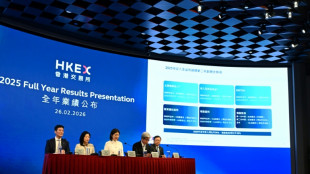
-
 West Indies recover from 83-7 to post to 176-8 against South Africa
West Indies recover from 83-7 to post to 176-8 against South Africa
-
Filmmakers defend Berlin festival chief in Gaza row

-
 Hong Kong mogul Jimmy Lai wins appeal in fraud case
Hong Kong mogul Jimmy Lai wins appeal in fraud case
-
Iranian in possible prisoner exchange faces 'terrorism' verdict in France

-
 'Street-smart' New Zealand can topple England to make T20 semis: coach
'Street-smart' New Zealand can topple England to make T20 semis: coach
-
Iran-US talks begin in push to avert war

-
 Merz says Germany, China must overcome trade gaps 'together'
Merz says Germany, China must overcome trade gaps 'together'
-
Automaker Stellantis posts massive loss, pivots from EV
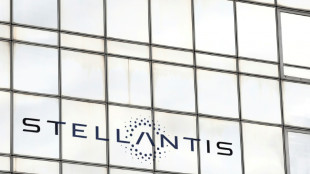
-
 US, Ukraine to meet in Geneva after overnight Russian strikes
US, Ukraine to meet in Geneva after overnight Russian strikes
-
Snake-like robot unveiled for Fukushima debris removal
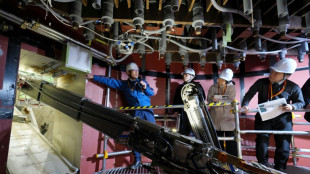
-
 'Public lynching': Senegal cracks down on LGBTQ+ community
'Public lynching': Senegal cracks down on LGBTQ+ community
-
Hong Kong sentences father of wanted activist to 8 months in jail

-
 The woman fighting to reclaim her face from Albania's 'AI minister'
The woman fighting to reclaim her face from Albania's 'AI minister'
-
Bulgaria ski station becomes refuge for digital nomads

-
 Thai runner-up party seeks criminal case against election officials
Thai runner-up party seeks criminal case against election officials
-
North Korea's Kim shuns South but could 'get along' with US

-
 Spurs win 10th straight, Pistons silence Thunder in battle of NBA's best
Spurs win 10th straight, Pistons silence Thunder in battle of NBA's best
-
Germany's Merz visits China AI hub hoping for business deals

-
 Post-uprising polls won't shake Nepal's delicate India-China balance
Post-uprising polls won't shake Nepal's delicate India-China balance
-
S.Korea's Park Chan-wook to head Cannes festival jury

-
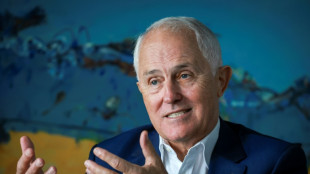 Australian ex-PM says 'more important than ever' to ditch UK monarchy
Australian ex-PM says 'more important than ever' to ditch UK monarchy
-
Dressed for succession? Kim Jong Un, daughter fuel speculation with matching coats

-
 US-Ukraine talks to open in Geneva after overnight Russian strikes
US-Ukraine talks to open in Geneva after overnight Russian strikes
-
Export ban sparks rush to process lithium in Zimbabwe

-
 Pakistani sculptor turns scrap into colossal metal artworks
Pakistani sculptor turns scrap into colossal metal artworks
-
Epstein files reveal links to cash, women, power in Africa
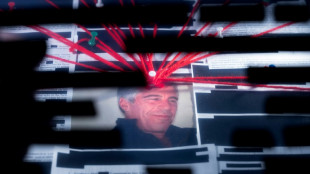
-
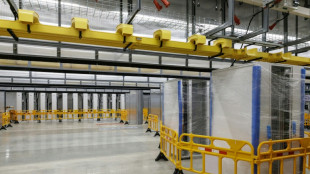 Where are Southeast Asia's data centres?
Where are Southeast Asia's data centres?
-
Where AI lives: Southeast Asia's data centre boom
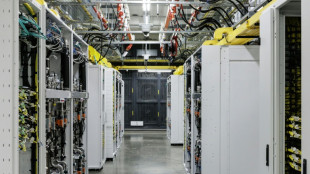
-
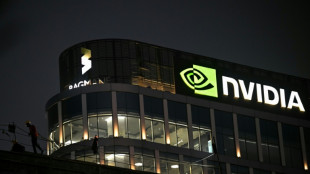 Seoul hits fresh record on mixed day for Asia markets
Seoul hits fresh record on mixed day for Asia markets
-
Kyiv residents pool together for solar panels and batteries amid Russian strikes

-
 North Korea's Kim says could 'get along' with US but shuns South
North Korea's Kim says could 'get along' with US but shuns South
-
Cuba kills four on US-registered speedboat trying to 'infiltrate'

-
 UK Labour party threatened by hard-right, leftists in heartland
UK Labour party threatened by hard-right, leftists in heartland
-
Australian PM sorry after saying sexual assault survivor 'difficult'

-
 Kim Jong Un spurns olive branch from 'hostile' South Korea
Kim Jong Un spurns olive branch from 'hostile' South Korea
-
DR Congo sanctuary resists bloody forest sell-off

-
 North Korea looking to replicate youth success at Women's Asian Cup
North Korea looking to replicate youth success at Women's Asian Cup
-
Deal or no deal: What's the state of Trump's tariffs?

-
 Hillary Clinton to testify in US House panel's Epstein probe
Hillary Clinton to testify in US House panel's Epstein probe
-
African migrants won legal protections - then Trump deported them

-
 US women's ice hockey captain responds to 'distasteful' Trump remark
US women's ice hockey captain responds to 'distasteful' Trump remark
-
US presses missile issue as new Iran talks to open in Geneva


SpiNNcloud Advances AI-Driven Drug Discovery with Deployment of Brain-Inspired Supercomputer
The largest SpiNNaker2 supercomputer for molecule drug discovery yet, with 656,640 cores
DRESDEN, GERMANY / ACCESS Newswire / July 28, 2025 / Today SpiNNcloud secured a deal to deliver a brain-inspired supercomputer to Leipzig University, marking a significant milestone in the advancement of computing for small molecule research for personalized medicine. This is the largest SpiNNcloud System to be deployed specifically for drug discovery, encompassing around 650k cores.
Developed by deep-tech company SpiNNcloud, SpiNNcloud Server System can simulate up to a minimum of 10.5 billion neurons for AI, HPC, and other applications. The SpiNNcloud Server System is based on the current chip generation and was pioneered by Steve Furber, designer of the original ARM architecture,and uses a large number of low-power processors for efficiently computing AI and other workloads.
The multi-million Euro system to be deployed in Leipzig is intended for protein folding simulations to achieve personalized medicine. The approach leverages the extreme parallelism and scale of these systems to deploy millions of small models tasked with finding hits between molecules and patient profiles. The system will enable the discovery of new personalized drugs at faster convergence speeds and under a lower energy profile compared to traditional GPU-based systems.
"The SpiNNcloud Server System architecture makes screening billions of molecules in silico feasible with a brain-inspired supercomputer design," said Christian Mayr, SpiNNcloud co-founder. "Originally dedicated to biological neural network simulation, The SpiNNcloud Server System is tailored for massively parallel execution of small, heterogeneous compute workloads, with generally programmable 10 million ARM-based processors with many dedicated DNN accelerators. A prototype neural network allows the screening of 20 billion molecules in less than an hour, two orders of magnitude faster than on 1000 CPU cores."
"The extreme parallelism of SpiNNcloud supercomputers makes them ideally suited for protein folding applications like those used in small molecule drug discovery," said Jens Meiler, Alexander von Humboldt Professor and Director of the Institute for Drug Discovery at Leipzig University. "Protein folding can be viewed as an optimization problem where the protein aims to find its lowest energy state. SpiNNcloud supercomputers are good at solving optimization problems and can be used to find optimal protein structures."
The SpiNNcloud system employs a highly parallel architecture consisting of 48 SpiNNaker2 chips per server board, each containing 152 Arm-based cores with specialized accelerators. This design enables efficient, event-driven computation, allowing the system to perform complex simulations at a lower energy profile compared to traditional GPU-based systems. Such energy efficiency is crucial for applications where power consumption and cooling are limiting factors.
"Our brain-inspired computing architecture is uniquely suited for deploying efficient algorithms that require dynamic sparsity and extreme parallelism," said Hector Gonzalez, SpiNNcloud co-founder and CEO. "Our systems are 18 times more energy efficient than current GPUs and are being used by leading institutions across Europe and the US. The deployment in Leipzig demonstrates the flexibility of our systems, as well as the continued adoption of the technology for unrivaled performance and energy efficiency."
Looking ahead from a broader perspective, SpiNNcloud is enabling support for the next generation of Gen AI algorithms, paving a radically more efficient path to machine learning advancement through dynamic sparsity. Recent breakthroughs in machine learning are driving a transition from traditional dense modeling - centered on fixed feature selection within neural representations - to extreme dynamic sparsity, where a subset of neural pathways are selectively activated based on the input. This approach helps to shape entirely new architectures for AI foundation models, and addresses the current energy crisis driven by mainstream AI scaling trends.
"SpiNNcloud's approach reflects a broader shift in performance-intensive computing, where innovation demands that infrastructure and algorithms be co-designed from the ground up," said Peter Rutten, Research Vice-President, Performance Intensive Computing, Worldwide Infrastructure Research at IDC.
For more information about SpiNNcloud and the SpiNNcloud platform, please visit https://spinncloud.com.
About SpiNNcloud:
SpiNNcloud enables customers to realize complex AI-driven systems through brain-inspired supercomputing technology. Our SpiNNaker2 architecture supports dynamic sparsity in mainstream AI applications while delivering superior energy efficiency. As a winner of the prestigious EIC Accelerator program, SpiNNcloud continues to solidify itself as sole European champion for specialized AI Supercomputers.
Contact:
Forrest Carman
Owen Media
[email protected]
SOURCE: SpiNNcloud Systems GmbH
View the original press release on ACCESS Newswire
L.Miller--AMWN


